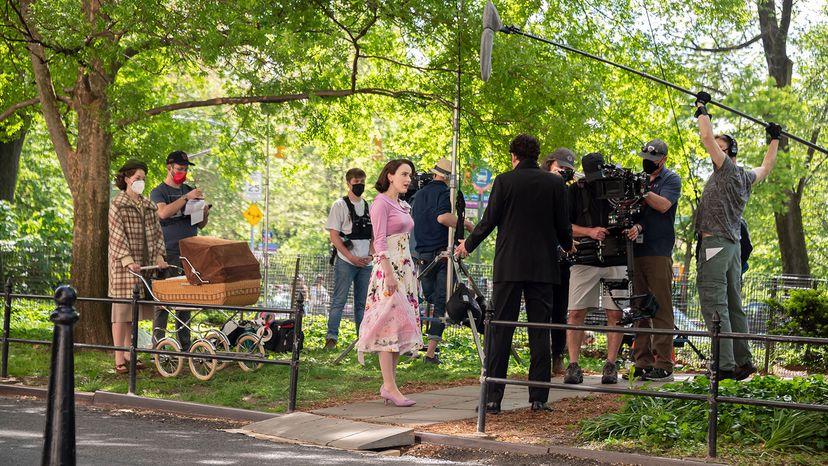One of the vaguest titles in Hollywood, a producer can be a writer, an investor, an idea man, a manager or all of the above. In film, the head producer is called the executive producer and is responsible for each and every phase of filmmaking: pre-production, production and post-production.
In pre-production, the producer reads scripts and hears ideas from writers, directors and agents. After choosing an idea, the producer has to raise money to fund the project. One route is to get the backing of a major movie studio. Another is to go independent and seek funding from individual investors.
Now the producer has to hire a screenwriter, a director, production staff, casting directors, art directors, camera and lighting crews, and editors.
It's the producer's job to make sure that the project stays within budget throughout production and post-production. A good producer not only makes good films, but makes money for the investors.
Like most jobs in the film industry, producers work their way up. You might start as a production assistant or a script reader, learning how to spot a good idea and how to bring it to fruition. Or you can just leap right in and learn by trial and error, making small, low-budget films and working up to bigger ones.
According to May 2020 numbers from the Bureau of Labor Statistics, the average annual salary for a film producer is $113,860. For the 23,680 producers and directors working in the Los Angeles area, that number jumps to $135,160. Remember, though, that producers seldom work on salary. Most take a cut of the film's earnings at the domestic and foreign box offices, plus from DVD sales, streaming video contracts and more. And those earnings move quickly into the millions.



